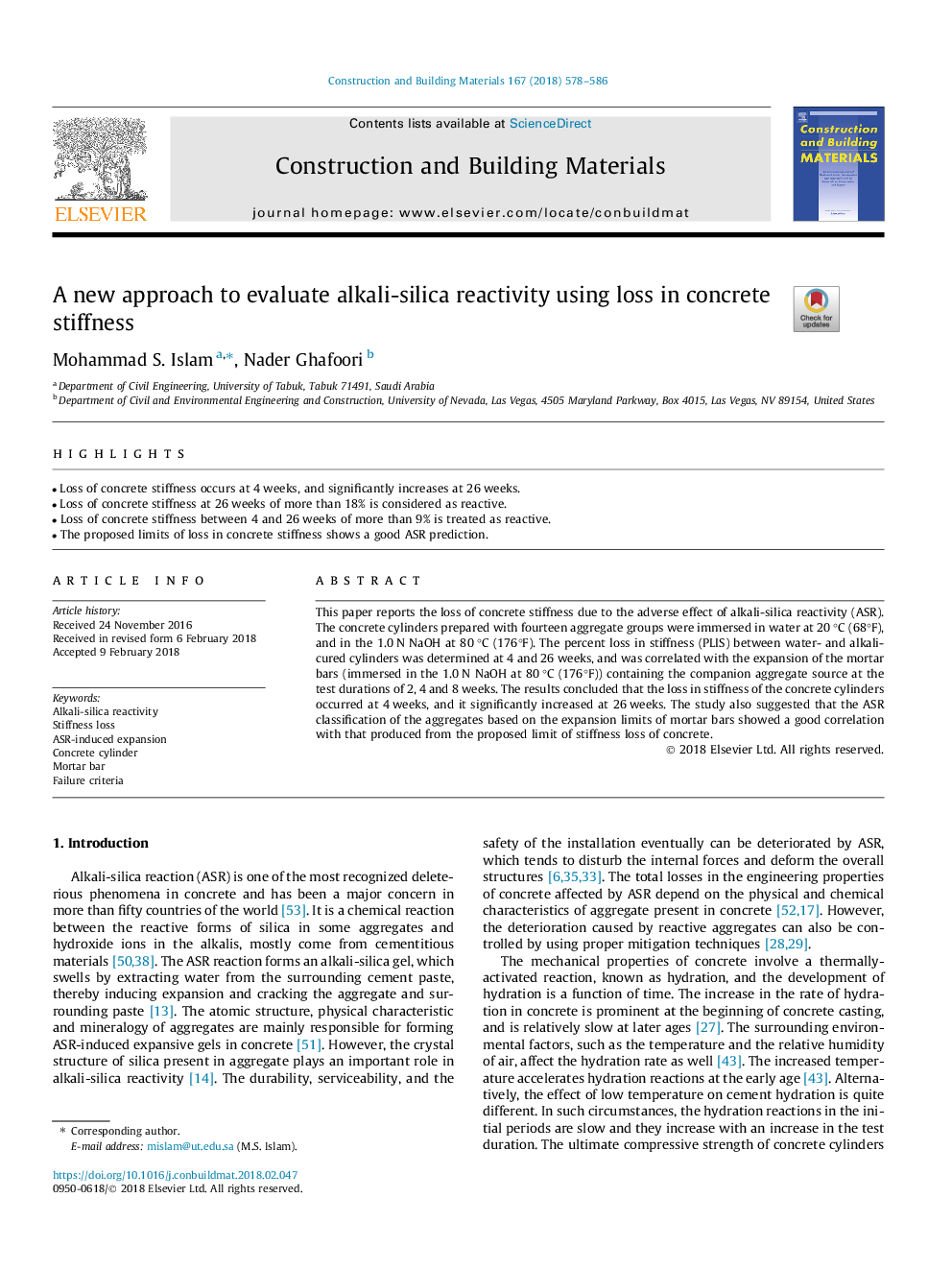| Article ID | Journal | Published Year | Pages | File Type |
|---|---|---|---|---|
| 6715215 | Construction and Building Materials | 2018 | 9 Pages |
Abstract
This paper reports the loss of concrete stiffness due to the adverse effect of alkali-silica reactivity (ASR). The concrete cylinders prepared with fourteen aggregate groups were immersed in water at 20â¯Â°C (68°F), and in the 1.0â¯N NaOH at 80â¯Â°C (176°F). The percent loss in stiffness (PLIS) between water- and alkali-cured cylinders was determined at 4 and 26â¯weeks, and was correlated with the expansion of the mortar bars (immersed in the 1.0â¯N NaOH at 80â¯Â°C (176°F)) containing the companion aggregate source at the test durations of 2, 4 and 8â¯weeks. The results concluded that the loss in stiffness of the concrete cylinders occurred at 4â¯weeks, and it significantly increased at 26â¯weeks. The study also suggested that the ASR classification of the aggregates based on the expansion limits of mortar bars showed a good correlation with that produced from the proposed limit of stiffness loss of concrete.
Related Topics
Physical Sciences and Engineering
Engineering
Civil and Structural Engineering
Authors
Mohammad S. Islam, Nader Ghafoori,
